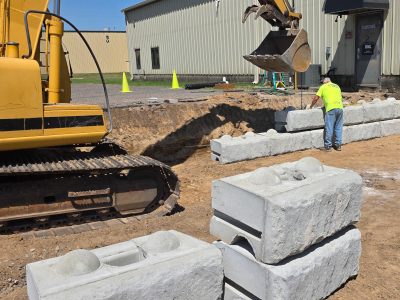You’ve got the deed to an expanse of earth. Perhaps it’s an airy meadow, a shaded grove, or a compact lot in town. Beyond soil and skyline, it’s a promise, an unmarked page on which to write a future. Left unattended, the space speaks very little, yet a few careful choices and a little vision can turn it into a living, growing asset.
Get to Know Your Land’s Story
Before you can picture all the futures your land might hold, take the time to read its present story. The local government has written the first draft detailing what your land can and can’t host. Zoning codes will tell you if the ground is reserved for homes, shops, or something else entirely. Once you have a clear sense of the zone, look deeper: what’s the setback, what’s the footprint, what permits might you have to coax through the desk of a reviewer? Now walk the ground: is the surface a smooth plain or a gentle roll? Is the water sliding away the way you want it to or is it settling in the wrong places? Those answers will show you the easy paths and the places where compromise will be required. If you haven’t already called a surveyor, do so: they will knife a ribbon through the underbrush, list your boundaries in numbers, and map the trees and dips as a clear picture of the land you actually hold.
Brainstorming What’s Possible
Now we get to the creative part: picture what lies ahead! The experts at Jamestown Estate Homes explain that your land holds all kinds of potential. The classic vision, of course, is to build on your lot; you might already see the windows, the porch, the garden. Maybe you dream of customizing every square foot instead of compromising on an existing place. But let the imagination stretch: could rows of veggies, a berry patch, or even a few chickens find their home here? Look around, listen to the neighbors, and let the contours of the land help you sketch its best future.
Reach Out to Helpful Voices
No one needs to navigate this alone. A network of seasoned people is ready to share what they’ve learned. Start with your local planning office; they can clear up any questions about zoning and the regulations that affect your property. A good real estate agent can offer a sense of what buyers or renters are currently seeking in your neighborhood. The neighbors who already own parcels in the area often have a pocket full of lessons learned and unspoken rules. Pulling their advice into your planning is like having a friendly compass. The more informed connections you gather, the easier the entire process becomes.
Money Matters and Looking Ahead
Buying land is a commitment that pays off slowly and surely. More often than not, the simplest profit strategy is the oldest: do nothing and let the neighborhood catch up. Don’t let taxes and small maintenance bills sneak up unnoticed; keep a dedicated budget that tracks them and leaves breathing room. All of this is easier if you anchor each decision to a clear financial vision.
Conclusion
Think of your land as a giant, yet to stretch; the promise it holds is enormous. When you slow down to read each inch, dream up smart new chapters, and listen to trusted voices, you turn bare dirt into lasting value. Whether your heart beats for a cozy home, a quiet roadside stand, or simply preserving a patch of wild, a patient, measured plan will pay off. It’s not merely owning ground; it’s quietly, purposefully coaxing the ground to become a lasting partner in your story.










Comments